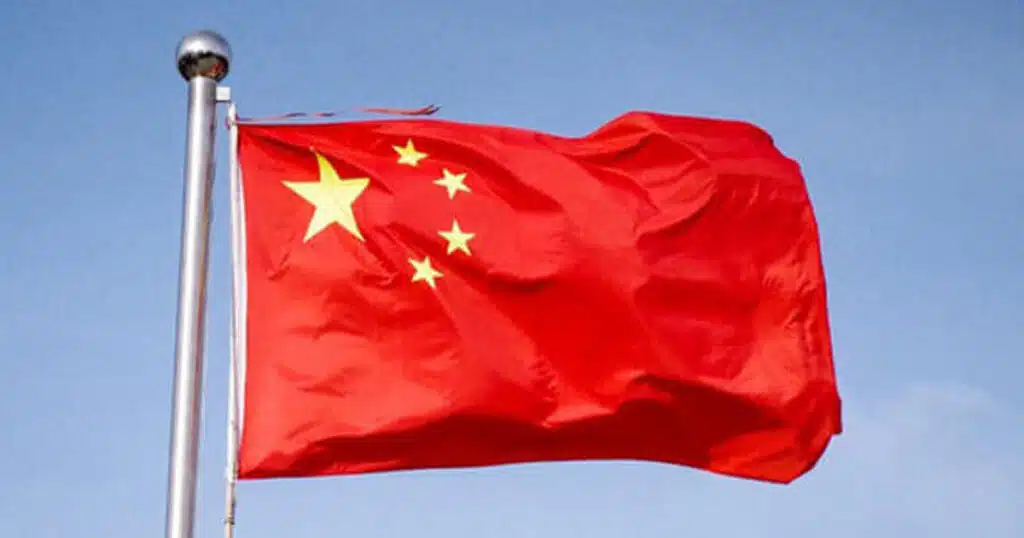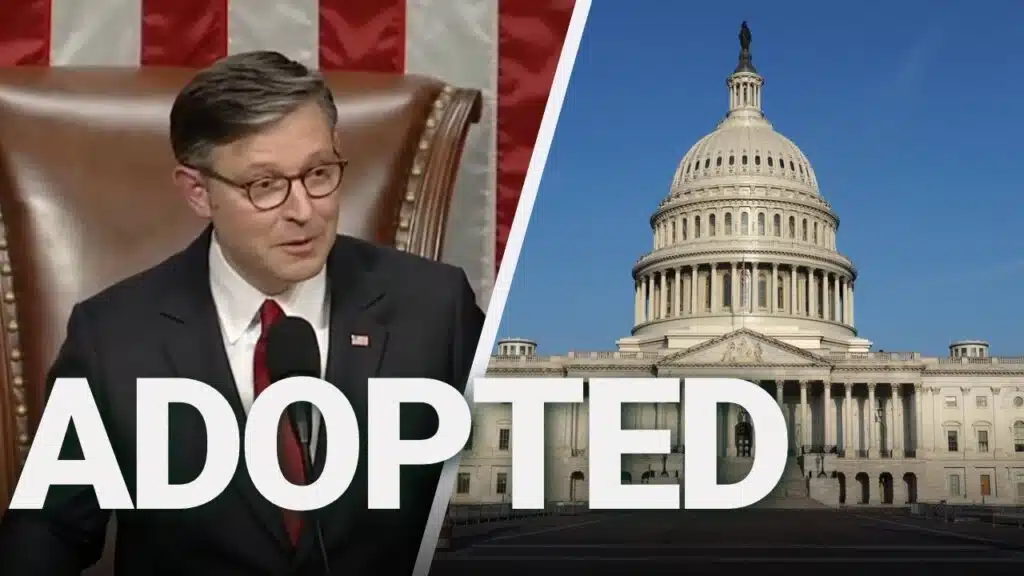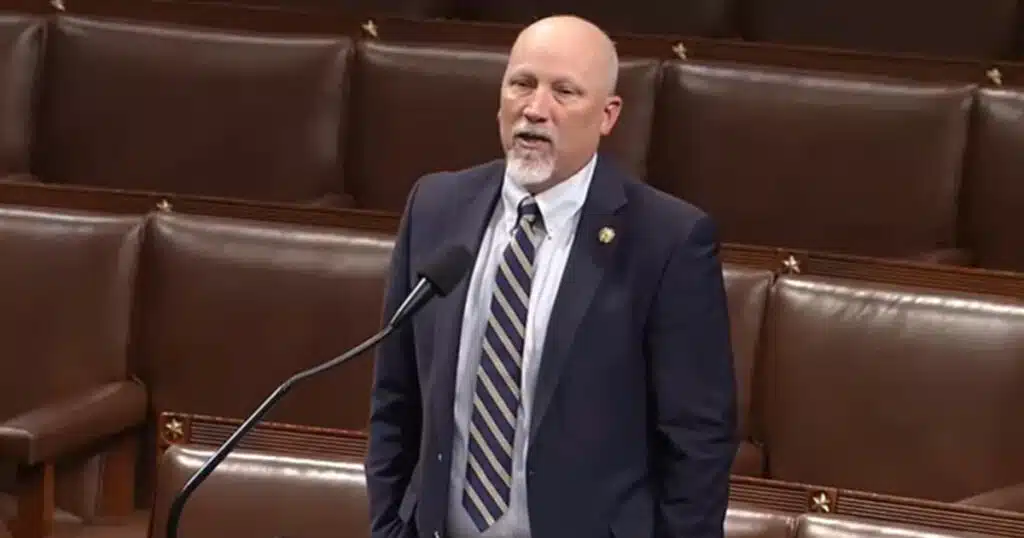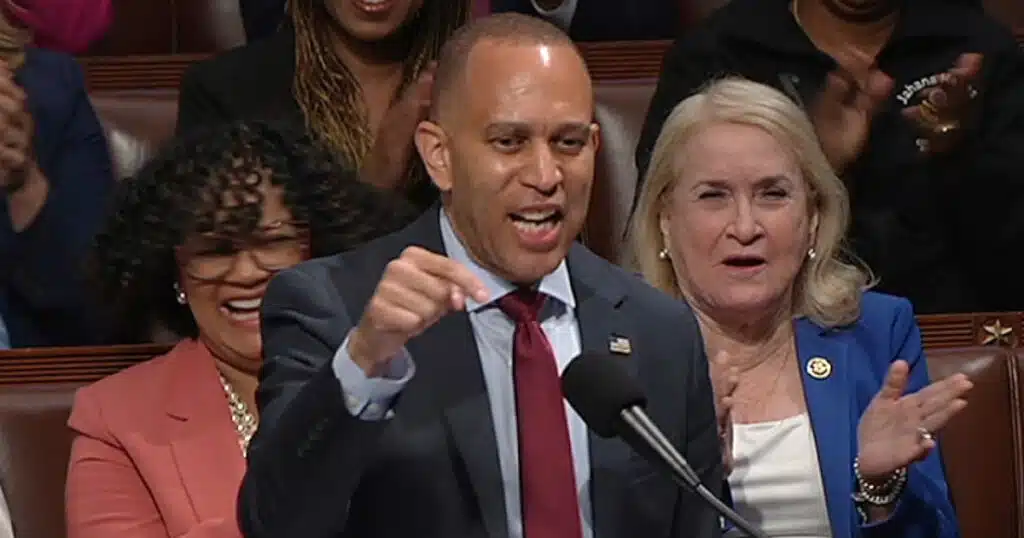
Bill Aims to Prevent Exports of Specific Intellectual Property, Technology to China
Rep. Mark Green on Thursday reintroduced legislation relating to “U.S. exports of certain technology and intellectual property” to China.
“It’s no secret the Chinese Communist Party rules its people through fear. From social credit systems dictated by the party to a surveillance state like something out of ‘1984,’ the Chinese people live under extreme tyranny,” Green, R-Tenn., chairman of the House Homeland Security Committee, told The Daily Signal in an emailed statement.
“That’s why I’m introducing the China Technology Transfer Control Act. The United States should not contribute to the transfer of technology with the CCP that leads to furthering its authoritarian state,” the Tennessee lawmaker said.
Green first introduced the legislation in June 2019 with Rep. Henry Cuellar, D-Texas. Sen. Josh Hawley, R-Mo., introduced similar legislation in the Senate the month before, though neither bill passed. Green introduced the legislation again in February 2021, and again it did not pass.
According to a press release about the legislation, “the bill stops China’s military from acquiring sensitive U.S. technology and intellectual property through export controls,” adding:
My bill controls U.S. exports of certain technology and intellectual property important to U.S. national interests to the People’s Republic of China.
Through espionage and extensive intellectual-property theft, the CCP and its network of state-sponsored enterprises have been able to gain a crucial advantage in developing advanced technologies.
The following are listed in the legislation as “covered national interest technology or intellectual property”:
- Technology or intellectual property that would make a significant contribution to the military potential of the People’s Republic of China that would prove detrimental to the national security of the United States.
- Technology or intellectual property that is a component of the production of products included in the most recent list required under Section 183 of the Trade Act of 1974, as added by Section 6(a), determined in consultation with the United States Trade Representative.
- Technology used by the government of the People’s Republic of China to carry out violations of human rights or religious liberties.
The introduction of Green’s legislation, HR 2594, comes as the Chinese Communist Party’s aggression continues to grow, aimed at both Taiwan and the West.
China’s recent military drills around Taiwan were meant to serve as a “serious warning” to both “pro-independence politicians” on the island, as well as to its foreign allies, The Associated Press reports.
“The People’s Liberation Army recently organized and conducted a series of countermeasures in the Taiwan Strait and surrounding waters, which is a serious warning against the collusion and provocation of Taiwan independence separatist forces and external forces,” Zhu Fenglian, spokesperson for China’s Taiwan Affairs Office, said on Wednesday.
“It is a necessary action to defend national sovereignty and territorial integrity,” Zhu said.
China’s military launched three days of drills, beginning on Saturday and ending on Monday, after Taiwanese President Tsai Ing-wen met with House Speaker Kevin McCarthy, R-Calif., and other lawmakers on April 5 at the Ronald Reagan Presidential Library in California.
Michael Cunningham, a research fellow in the Asian Studies Center at The Heritage Foundation, said Zhu’s comments were predictable. (The Daily Signal is the news outlet of The Heritage Foundation.)
“That’s exactly what the exercises were intended to be—a warning to Taiwan’s ruling party and to the United States,” Cunningham told The Daily Signal in an emailed statement. “China almost always responds to meetings between senior U.S. and Taiwanese officials by engaging in military provocations, so its response to the Tsai-McCarthy visit last week wasn’t at all surprising.”
“From the perspective of anyone outside China, this kind of show of force is unnecessary and only makes conflict more likely, by heightening the risk of escalation, but that’s not how Beijing sees it,” Cunningham added. “Although Tsai Ing-wen has been very moderate in her policy toward China and explicitly opposes the idea of Taiwan independence, Beijing deeply distrusts her and the Democratic Progressive Party, which she is a part of.”
Cunningham added:
Furthermore, the meeting between Tsai and McCarthy was in line with past precedent and in no way violated America’s [“One China” policy], which the current and previous administrations have consistently reaffirmed, but Beijing is nevertheless paranoid that the U.S. and the [Democratic Progressive Party] are in cahoots to gradually bring about legal independence for Taiwan, and nothing either side can do or say will convince them otherwise.
Beijing’s military exercises, known as Joint Sword, “simulated sealing off the island,” The Associated Press reported.



